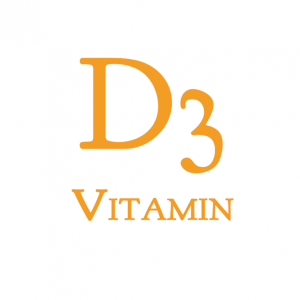
Vitamin D3
Vitamin D3 is a fat-soluble nutrient. It is one of the 24 micronutrients critical for human survival.
Supplemental vitamin D is associated with a wide range of benefits, including increased cognition, immune health, bone health and well-being. Supplementation can also reduce the risks of heart disease, diabetes and multiple sclerosis. People deficient in vitamin D may also experience increased testosterone levels after supplementation.
The body produces vitamin D from cholesterol, provided there is an adequate amount of UV light from sun exposure. There is only a sufficient amount of UV light coming from the sun when the UV index is 3 or higher, which only occurs a few months of year.
Most people are not deficient in vitamin D, but they do not have an optimal level of vitamin D either. Due to the many health benefits of vitamin D, supplementation is encouraged if optimal levels are not present in the body.

Vitamin D3 (cholecalciferol) is a natural form of vitamin D that is synthesized in the skin in response to exposure to ultraviolet rays from the sun. This vitamin is fat-soluble, has properties of both a vitamin and hormone, and is required in calcium absorption and utilization. Vitamin D3 is known to support bone health, the immune system, nervous system and cardiovascular health.
For children, vitamin D is especially important for growth, the normal development of bones and teeth, and immunity. Vitamin D also protects against muscle weakness, aids in the regulation of the heart beat, and is necessary for the correct function of the thyroid gland, normal blood clotting and healthy arteries. Vitamin D3 is significantly more effective than vitamin D2 (ergocalciferol), whose source is mainly food.
Vitamin D can be easily obtained from the sun. Those who spend a lot of time indoors and do not expose themselves to the sun enough may end up getting serious and chronic health conditions.



